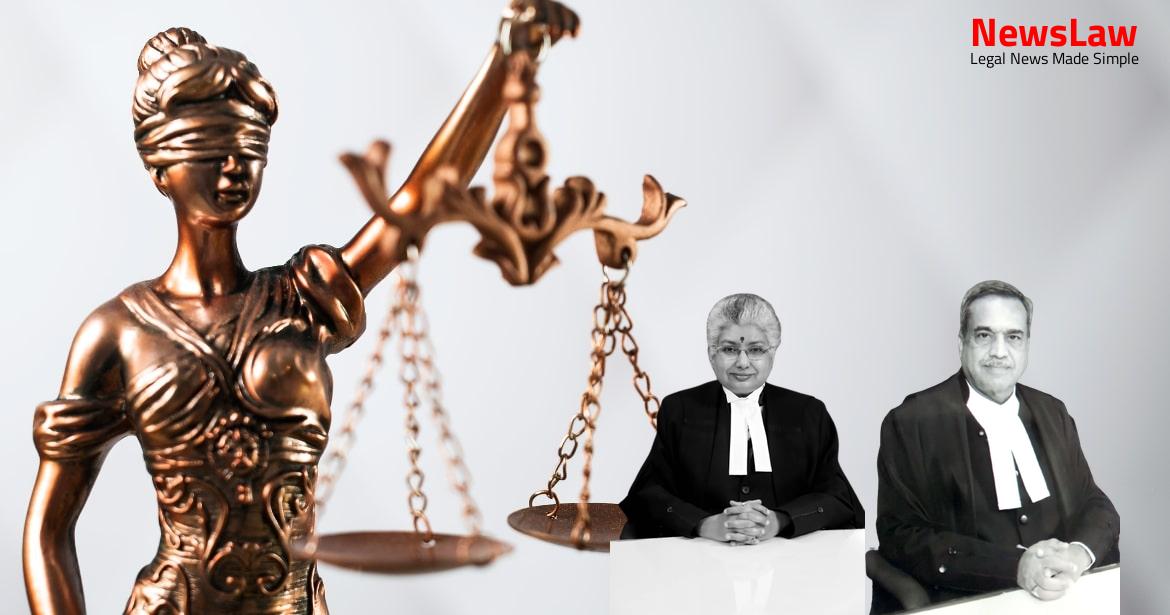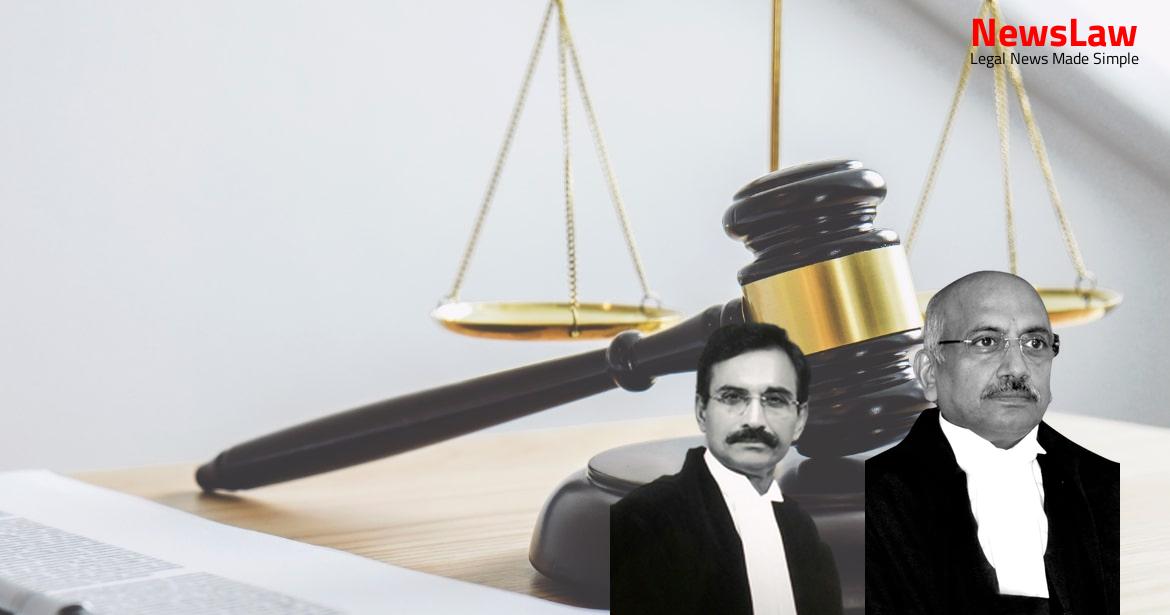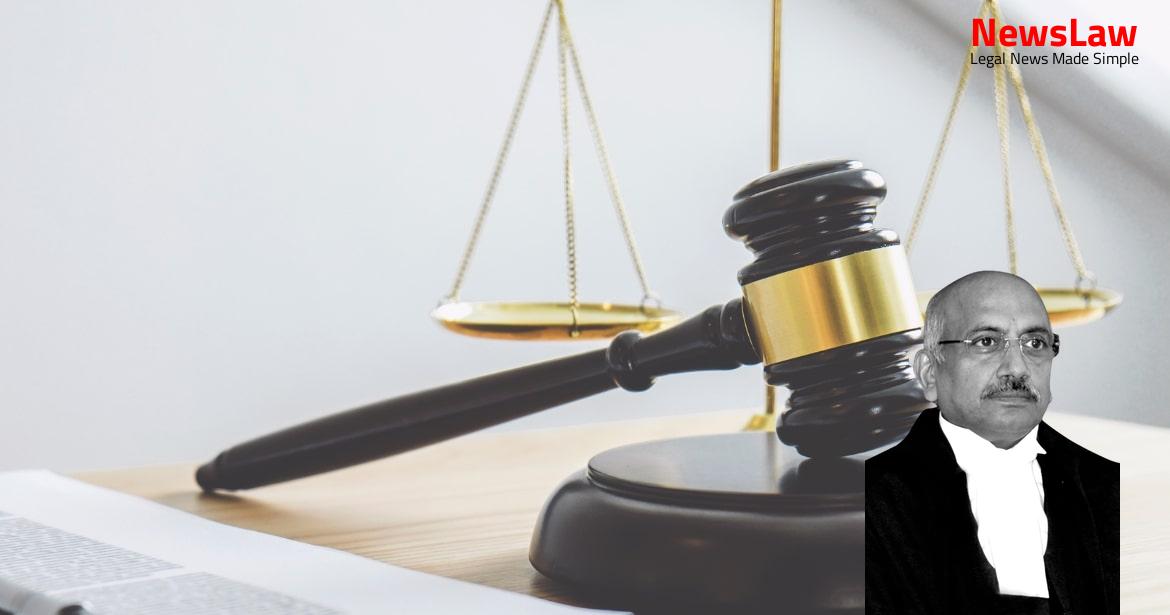Explore the critical role of future prospects in determining compensation in legal cases. The court’s analysis of future income potential for deceased individuals significantly influences the final compensation awarded. Understanding the legal principles and considerations behind factoring in future prospects is essential for ensuring a fair and just outcome in compensation cases. Follow along to delve into the complexities of this important aspect of compensation analysis.
Facts
- Union of India and original claimants appealed against the judgment by Tribunal.
- High Court reduced compensation from Rs.12,85,000 to Rs.6,10,000.
- High Court assessed income of deceased at Rs.5,000/month.
- High Court awarded Rs.5,40,000 for future loss of income based on multiplier of 18.
- High Court awarded total of Rs.6,10,000 instead of Rs.12,85,000 by Tribunal.
- Original claimants appeal against High Court’s decision.
- The Motor Accident Claims Tribunal (MACT) examined the claim petition filed by the original claimants – mother, father, brother, and sister of the deceased.
- The claimants sought Rs. 25 lakhs as compensation on various grounds.
- They claimed that the deceased was earning Rs. 8,000 per month by providing tuition to students at the time of the accident.
Also Read: Legal Analysis on Conviction Based on Sole Testimony of Prosecutrix
Arguments
- The appellants argue that the deceased, a B.E. student aged 21-22 years, should not have had his income considered at Rs.5,000/- per month as he had a bright future.
- The claimants’ assertion that the deceased earned Rs.25,000/- from Nectal Construction Company and Rs.8,000/- from private tuition was disbelieved, indicating he was not earning at the time of the accident.
- As there was no existing income at the time of death, there should be no assumed future rise in income for calculating future loss.
- The High Court did not factor in any future rise in income when awarding future loss, based on the deceased’s supposed income of Rs.5,000/- per month.
- The counsel representing the Union of India argues that the claimants have accepted the full payment awarded by the High Court in execution proceedings.
- Claimants have expressed their acceptance of the amount as a final settlement.
- Therefore, the Union of India requests that the present appeal not be entertained as the payment has been settled.
Also Read: Legal Analysis on Concurrent Sentences in Drug Trafficking Cases
Analysis
- Future prospects need to be considered when determining compensation for a deceased individual.
- The income of the deceased should be estimated based on various factors such as education, family background, and society’s changing dynamics.
- There should be an addition of 40% of the established income towards future prospects for deceased below 40 years of age and 25% for deceased between 40-50 years.
- Even if the deceased was not earning at the time of death, future rise in income should be factored in considering human nature to increase income over time.
- The legal representatives of a deceased, regardless of employment status, should be entitled to future prospects in compensation calculations.
- The principle of standardisation should be applied uniformly to those with fixed salaries, the self-employed, and individuals without income at the time of death.
- The claimants should be entitled to future economic loss based on factors like education and family background.
- The decision to add future prospects to compensation is justified to ensure just compensation and account for human tendency to strive for better income.
- The standardisation principle ensures consistency and certainty in determining compensation amounts.
- The degree-test should be applied to enable parties to provide evidence for a fair compensation determination.
- The determination of income for computing compensation must include future prospects for just compensation.
- The formula for multiplier as stated in the Sarla Verma case has been approved and must be followed for consistency.
- Evidence must be provided to establish the age and income of the deceased.
- Pragmatic computation in proximity to reality is the basic principle to be followed by tribunals and courts.
- Materials brought on record in individual cases should aim for arithmetical precision.
- The National Insurance Company Limited vs Pranay Sethi case should be referred to when adding future prospects to determine the multiplicand.
- Exception for bringing materials on record to claim the benefit of addition of future prospects is allowed in certain cases.
- Specific percentages of addition to established income based on the age of the deceased have been prescribed.
- Compensation should be fair, reasonable, and equitable, without being a windfall or pittance.
- The concept of just compensation must be viewed through the prism of fairness and reasonableness.
- The Motor Vehicles Act is a benevolent Act.
- Claimants are entitled to just compensation
- Union of India should not have taken a certain plea/defence.
Also Read: Legal Jurisdiction and Award Finality in Arbitration Dispute
Decision
- The total compensation awarded to the claimants is Rs.15,82,000/- with 7% interest from the date of claims petition.
- The appellants are directed to deposit the balance amount with the Tribunal within six weeks.
- The enhanced compensation amount is to be invested in fixed deposit in the parents’ name for 3 years, with the parents entitled to the interest.
- The appellants are to pay a token cost of Rs.10,000/- to the original claimants, to be deposited with the Tribunal within six weeks.
Case Title: MEENA PAWAIA Vs. ASHRAF ALI (2021 INSC 750)
Case Number: C.A. No.-006724-006724 / 2021



